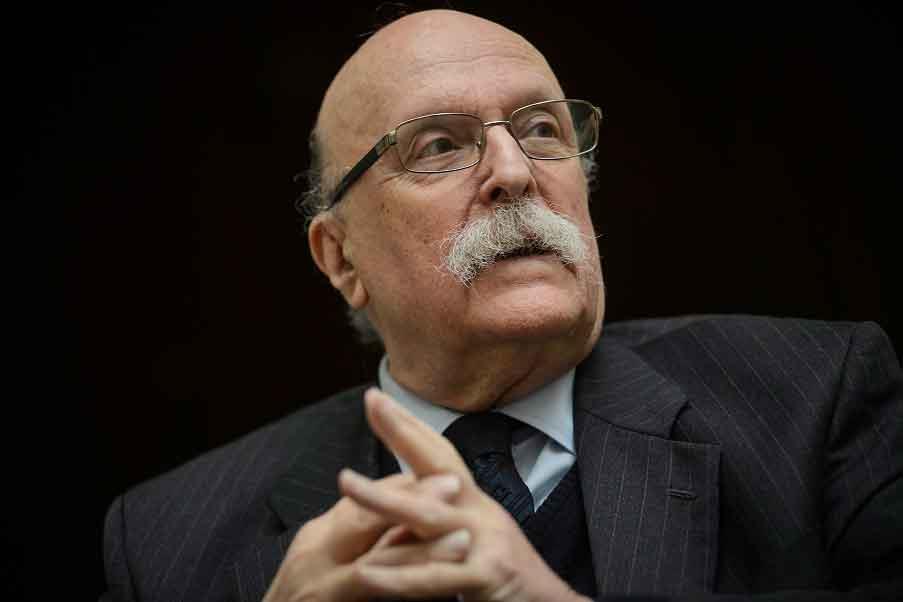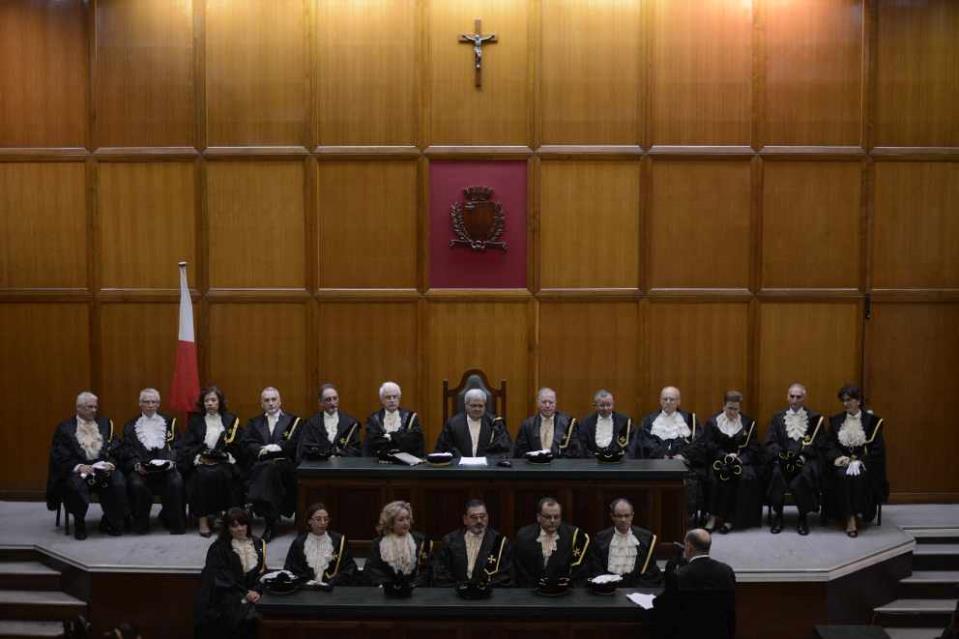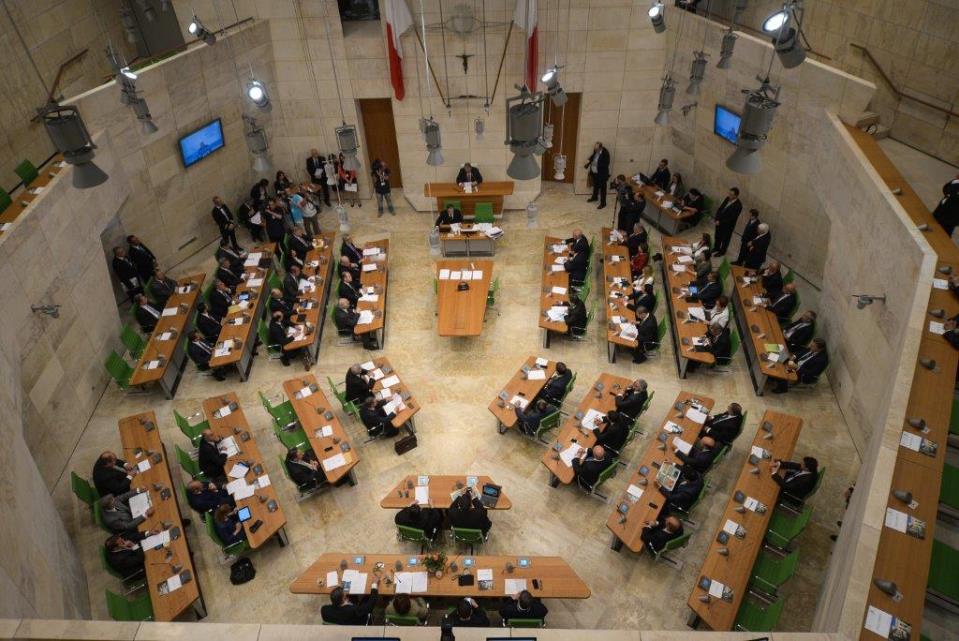The impeachment of judges and magistrates should not be decided by Parliament, a process that does not work, according to the president of the Chamber of Advocates, lawyer George Hyzler.
Currently, impeachment motions are brought before Parliament after a decision by the Commission for the Administration of Justice. The removal of a judge or magistrate would need to garner a two-thirds majority in the House. “History has shown that no matter the type of charge brought against a judge or magistrate, motions for impeachment are not approved by Parliament because they are partisan motivated. This undermines the public’s perception of the judiciary and the judicial system. What credibility would a judge have if he were to hang on to his post despite a recommendation for dismissal by the Commission for the Administration of Justice simply because of a split vote in Parliament on party lines?”
His proposal differs from the recommendation made by the Bonello Commission, which suggested that the impeachment powers remain with Parliament, in line with the Constitution, but with some amendments.

Interviewed by The Malta Independent on Sunday, Dr Hyzler said the Commission for the Administration of Justice should be given the power to remove members of the judiciary in the case of misconduct, and the issue should stop there. At most, Parliament can have the power to overturn decisions of the Commission relating to removal, but it would then have to justify its decision.
The Malta Independent on Sunday sought a follow-up interview with Dr Hyzler after his speech during the opening of the new forensic year on Wednesday, where he also called for the Executive (Cabinet) to renounce its unfettered power to appoint members of the judiciary.
Judges and magistrates should not be appointed by the government
“I have no reason not to have confidence in the present members of the judiciary with political backgrounds. However, their appointment does not help the argument that Government should retain its unfettered right to choose and appoint members of the judiciary.”
Dr Hyzler also insisted that it was wrong for judges and magistrates to be appointed exclusively by the government as this led people to have a negative perception on the judiciary. “People should not look at the judges and magistrates as political appointees. The judiciary has to be above politics. In a healthy democracy, the powers of the Executive and those of the judiciary should be separate but not everyone is ready to understand this. As a rule, governments do not readily renounce their powers.”

In his speech Dr Hyzler took the principle further and included all persons appointed to positions having an adjudicating function, including chairmen of judicial tribunals and commissions.
The lawyer says he was interpreted as saying that the government should withdraw completely from taking such decisions. “Well that would be ideal, but I know that it is not very likely to happen at this point. I believe that, at least, the Justice Minister should follow some of the recommendations made by the Bonello commission. We aspire to take politics out of the judicial appointment system as much as possible knowing full-well that politics cannot be eliminated altogether.”
Dr Hyzler agreed that, apart from putting the entire system in a bad light, the appointment of former party officials to the bench could also put the individual’s integrity in question in the eyes of the public and put unnecessary pressure on the individual concerned. Then again he states that he has full confidence in their abilities. “I have no reason to believe that these people are not capable of rising above politics, but that is not quite the point.”
Dr Hyzler, himself a former Nationalist minister, says he does not look at judges and magistrates as former party officials but as professionals carrying out their duty. Pointing out that his political career ended some 13 years ago, he referred to what was said in a number of on-line comments on an article that appeared in this newspaper following his speech, which seemed to imply that this principle also applies to his own appointment as president of the Chamber of Advocates. “Well, I am not appointed, I am elected to the post by my peers, and in any case I am not involved in the judicial process. My job is to reflect the opinions of the legal fraternity that I represent.”

So how should judges and magistrates be appointed, we asked? “There is no single system in Western democratic systems. In the US judges are in some instances voted in. In other countries, like Malta, the executive chooses without any scrutiny from anyone. Ideally we should have a system that rests somewhere in the middle. At this stage of our development, we would not be against a system where the Commission for the Administration of Justice draws up a list of suitable candidates and submits it to the government to choose a name or names. The Commission could draw up a short-list after a careful vetting process and after proper due diligence. The Commission is currently chaired by the President of Malta and the Chief Justice is its deputy-chairman. A number of judges and magistrates also sit on the Commission, apart from a representative nominated by the government and one nominated by the Opposition and the president of the Chamber of Advocates. The Commission is therefore both detached from the government and representative.” The Bonello Commission suggested changes to the composition of the Commission.
He does not agree entirely with the Chief Justice, who said the appointment by the Executive gives the appointment “a democratic seal of approval”.’ The fact is, he said, that this system has existed since colonial times and was adopted by a government that wanted to have its mind at rest that the judiciary would play ball. “Judges should be chosen on the basis of their competence and integrity, and after a proper due diligence process on several aspects including financial and academic capabilities, not for their popularity.”

Dr Hyzler does not feel that Parliament should vote on the appointment of new judges, not even if by a two-thirds majority. “This system might work in other areas such as the appointment of the Ombudsman but I do not feel that judges should be appointed as a compromise between the two political parties, or that perhaps they fail to be approved because they are blocked by one of the parties. I also fear that the two-thirds majority will not always work.” Nor does he agree that appointments should be made in agreement with the Opposition. Besides, the process should not be debated in public. While the public should know what the criteria for appointment are, it would be unwise to publicise the reasons why applicants would have failed.”
We asked Dr Hyzler how confident he was that politicians would one day relinquish the power to appoint members of the judiciary. “It would take an extraordinary politician to relinquish that power. No one likes to relinquish power,” he replied. “Over the years we have taken important measures that strengthened our democratic structures. This would be another important step. One day we will look back at the method adopted today as having being outright undemocratic”.